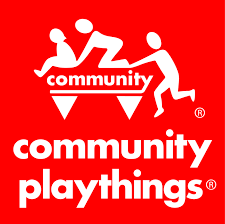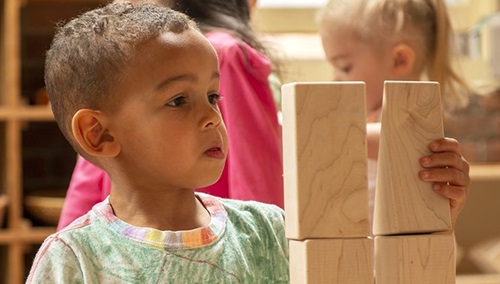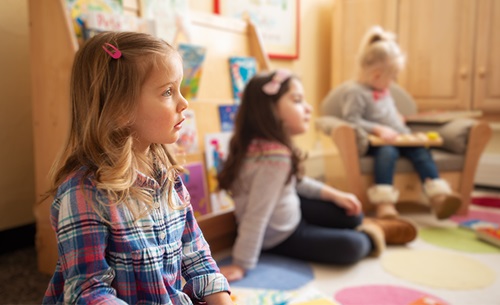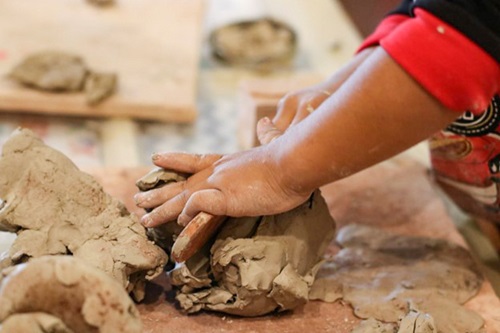Play is a Child's Work
| October 2014Play is the highest expression of human development in childhood, for it alone is the free expression of what is in a child’s soul. Friedrich Froebel
True education can never be forced—a child has to want to learn. This longing is often locked deep inside, and it is the teacher’s task to discover and encourage it. But teaching has probably never been as difficult as it is now. Many children spend more hours each day with their caregivers than with their parents. Too frequently, they come from broken homes into understaffed and underfunded classrooms. These children often enter the room rebellious and guarded, blocking teachers out for fear of being betrayed by yet another figure of authority.
But the role of the teacher is now more important than ever, and the most vital part of the work is not academic. We need to allow children to be children for as long as possible. They need time to breathe in and breathe out. They need to play. Children are not computers or robots that can be programmed according to our wishes; they have a heart and soul, not only a brain.
Friedrich Froebel, who created the concept of the kindergarten, was a nineteenth-century German educator whose greatest gift was his ability to view life through a child’s eyes. That is why, almost two hundred years later, his educational philosophy makes sense to anyone who loves children. When he coined the name “kindergarten,” he meant it literally—“a garden of children”—where each child is nurtured with the same love and care given to a seedling. He knew that humans are essentially creative and compassionate beings, and that education must involve the development of these traits.
Froebel often spoke of the importance of children’s play: “A child who plays thoroughly and perseveringly, until physical fatigue forbids, will be a determined adult, capable of self-sacrifice both for his own welfare and that of others.”
In Froebel’s Educational Laws for All Teachers, educator James Hughes distills much of the wisdom of Keilhau into thoughts that are easily understood today:
Froebel objected to every system that magnified knowledge at the expense of the child, and his whole life was a protest against the “stamping and molding” processes of teachers who failed to recognize the sacredness of the child’s individuality. What he valued was not power, but creative power. He aimed to make something better of his pupils than mere “machines,” and, as he so well said, to make them “free, thinking, independent people.”
Some of the greatest educational visionaries in America studied and built on Froebel’s philosophy. Elizabeth Peabody was instrumental in the establishment of kindergartens across America. Caroline Pratt invented the concept of the unit block in 1913 and started City and Country School the next year. Lucy Sprague Mitchell founded the Bank Street College of Education with its focus on the early years. These women blazed the trail for learning through play, and their schools still stand as beacons for the education of the “whole child,” emphasizing physical activity and creative expression.
Today advocates of play and exploration can be found everywhere. In fact, all good teachers know that play for its own sake is irreplaceable in a child’s life. Not only is it the best method of early education, but it’s also essential for the growth of a child’s spirit. In a way, play ought to require no further defense; it defines childhood.
Yet in their document Crisis in the Kindergarten, Alliance for Childhood’s Edward Miller and Joan Almon report that play continues to vanish from young children’s lives. They back up their claim with studies and compelling evidence, and sum up their findings:
Kindergarten has changed radically in the last two decades in ways that few Americans are aware of. Children now spend far more time being taught and tested on literacy and math skills than they do learning through play and exploration, exercising their bodies, and using their imaginations. Many kindergartens use highly prescriptive curricula geared to new state standards and linked to standardized tests. In an increasing number of kindergartens, teachers must follow scripts from which they may not deviate. These practices, which are not well grounded in research, violate long-established principles of child development and good teaching. It is increasingly clear that they are compromising both children’s health and their long-term prospects for success in school.
Some of the worst changes have originated from government-mandated academic programs that rob children of their chance to learn through play and burden teachers with ever more pressure and paperwork. As I watch this trend grow every year, I agree with Albert Einstein’s observation: “It is a miracle that curiosity survives formal education.”
The motives behind standardization often sound right. Politicians say they want to “fix” our broken educational system so our children can compete on the global stage. They talk about going back to basics, mastering the three Rs, and documenting measurable results. And many of these mandates are a direct result of parents and voters calling for change.
But we should look more closely at the kind of change that children need. Programs handed down from distant political establishments come with strings attached. Additional paperwork removes teachers from the children who need their care. Children are bewildered by tests and diagnostics at an age when they should be playing. Decision-makers, it seems, ignore the wisdom of the teachers who could—and do—tell them how children learn.
An example of this is a recent resignation letter from teacher Susan Sluyter, published in The Washington Post:
I am writing today to let you know that I am resigning my position as Pre-K and Kindergarten teacher in the Cambridge Public Schools. It is with deep sadness that I have reached this decision, as I have loved my job, my school community, and the families and amazing and dedicated faculty I have been connected with throughout the district for the past eighteen years.
In this disturbing era of testing and data collection in the public schools, I have seen my career transformed into a job that no longer fits my understanding of how children learn and what a teacher ought to do in the classroom to build a healthy, safe, developmentally appropriate environment for learning for each of our children
I have experienced, over the past few years, the same mandates that all teachers in the district have experienced. I have watched as my job requirements swung away from a focus on the children, their individual learning styles, emotional needs, and their individual families, interests, and strengths to a focus on testing, assessing, and scoring young children, thereby ramping up the academic demands and pressures on them. Each year, I have been required to spend more time attending classes and workshops to learn about new academic demands that smack of first and second grade, instead of Kindergarten and Pre-K.
I have needed to schedule and attend more and more meetings about increasingly extreme behaviors and emotional needs of children in my classroom; I recognize many of these behaviors as children shouting out to the adults in their world, “I can’t do this! Look at me! Know me! Help me! See me!” I have changed my practice over the years to allow the necessary time and focus for all the demands coming down from above. Each year there are more. Each year I have had less and less time to teach the children I love in the way I know best—and in the way child development experts recommend. I reached the place last year where I began to feel I was part of a broken system that was causing damage to those very children I was there to serve.
I was trying to survive in a community of colleagues who were struggling to do the same: to adapt and survive, to continue to hold onto what we could, and to affirm what we believe to be quality teaching for an early childhood classroom. I began to feel a deep sense of loss of integrity. I felt my spirit, my passion as a teacher, slip away. I felt anger rise inside me. I felt I needed to survive by looking elsewhere and leaving the community I love so dearly. I did not feel I was leaving my job. I felt then and feel now that my job left me.
Many other teachers feel the same. But public policy is against them, and they feel forced out of their field. Teaching requires great love, wisdom, and patience. It takes time to discover the best in each child, and then to draw it out. What happens when teachers are robbed of this precious time? When will they get the chance to build a relationship with each child through simple interaction and play, which is when the best teaching moments actually occur.
In Australia, educator Maggie Dent speaks out boldly in defense of play:
Unstructured, child-centered play has enormous benefits for young children, and those benefits cannot be tested by benchmark testing. Our capacity to be creative thinkers and innovative problem-solvers comes from using our own mental processing to explore the world. How much do we need to value creative thinking, given the speed of change sweeping our modern world? There are no answers in textbooks about how to manage unexpected change, and this is why we are disabling our children by stealing their capacity to use play to learn, to explore, to question, and to solve problems without an adult’s assistance. They are biologically wired to learn from their experiences, provided those experiences are engaging and interesting.
Every child is different. Each has a unique set of abilities, created for a special purpose. So why force a common educational standard on them? We know children learn best through playing, but play also brings joy, contentment, and detachment from the troubles of the day. In our frantically over-scheduled culture, every child should have a right to play.
Excerpted from Their Name Is Today: Reclaiming Childhood in a Hostile World by Johann Christoph Arnold.
© Plough Publishing House 2014; used with permission.








